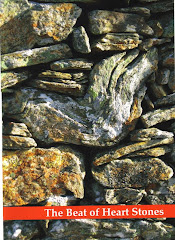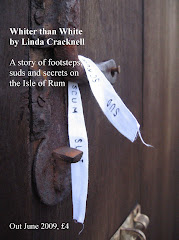
On the ‘John o’ Groats’ tip of Zanzibar island, we take the un-European way. At sunrise, we walk away from the hotels and tourist shops that encrust certain bays and promontories, into a world of baobab trees and cassava plots, mangrove swamps and coral rag that have always been there and still exist, almost secretly to us, in the spaces between.
Looking for paths worn into earth by bare feet, or the places around the edges of plots where sharp coral rag has been polished by persistent journeys, we piece together a walk cross-country from one village to another. We pass from one bay where mangrove poles have been cut and lashed into bundles ready for collection, into another where fishermen prepare their boats. From a whisper of a trail to a broad path of flat red earth that shouts a purpose. From one set of directions - part told to us, part walked with us - to the next. Everyone we meet wants to know where we are going. When we tell them, they laugh, tell us it is far and point a little inland to the road from where we could take a car.
After two and a half hours, with the sun beginning to bite, we emerge at Kidote, a small village hugging the sides of the road. We are suddenly amongst many walkers, our sticky skin collecting dust chucked up by the vehicles which rip through every few minutes. I have noticed a ‘hoteli’, a small restaurant, when I’ve driven through myself. Hot sweet spiced chai sinks its talons into my mind. A soft donut-like andazi to dip in it. We stop expectantly at the open window. The young boy inside, greeting us from an apparently empty concrete shell, tells us that indeed it is an hoteli. But they have nothing, he tells us with laughter. Not a single thing.
At the stall over the road we ask if there is another hoteli. They direct us back towards the young boy but we tell them his news. Disappointed, we cross the road to await the bus. We sit there, and watch the passers-by, the shop-goers, hear the exchange of greetings. We clearly look demolished by heat and tiredness. And we hear again and again the story of how those wazungu sitting over there, walked all the way from Kendwa to visit the hoteli and found it bare. The story is ‘walked through’ over and over, perfected with details and even given a different ending, in which someone goes home to cook us up some chai.
I wonder for how many days afterwards this story will be re-enacted and embellished. Perhaps the old man with one tooth and brand new wellies who we met at the top of the escarpment will add his encounter with us to the story when he returns to the village from his boat. The two children who scattered like chickens from us will add theirs, and the women at Kendwa drawing water from the well will tell how we looked fresh and strong when we set off but stumbled a great deal on the rough rocks.
Like the path we found, the story of our walk might be gradually pieced together, crafted into something whole and satisfying to be retold in a quiet moment when the absurdity of Europeans is under discussion. And perhaps the punch-line, causing most hilarity, will be, ‘They said they have a car but they wanted to walk!’
Looking for paths worn into earth by bare feet, or the places around the edges of plots where sharp coral rag has been polished by persistent journeys, we piece together a walk cross-country from one village to another. We pass from one bay where mangrove poles have been cut and lashed into bundles ready for collection, into another where fishermen prepare their boats. From a whisper of a trail to a broad path of flat red earth that shouts a purpose. From one set of directions - part told to us, part walked with us - to the next. Everyone we meet wants to know where we are going. When we tell them, they laugh, tell us it is far and point a little inland to the road from where we could take a car.
After two and a half hours, with the sun beginning to bite, we emerge at Kidote, a small village hugging the sides of the road. We are suddenly amongst many walkers, our sticky skin collecting dust chucked up by the vehicles which rip through every few minutes. I have noticed a ‘hoteli’, a small restaurant, when I’ve driven through myself. Hot sweet spiced chai sinks its talons into my mind. A soft donut-like andazi to dip in it. We stop expectantly at the open window. The young boy inside, greeting us from an apparently empty concrete shell, tells us that indeed it is an hoteli. But they have nothing, he tells us with laughter. Not a single thing.
At the stall over the road we ask if there is another hoteli. They direct us back towards the young boy but we tell them his news. Disappointed, we cross the road to await the bus. We sit there, and watch the passers-by, the shop-goers, hear the exchange of greetings. We clearly look demolished by heat and tiredness. And we hear again and again the story of how those wazungu sitting over there, walked all the way from Kendwa to visit the hoteli and found it bare. The story is ‘walked through’ over and over, perfected with details and even given a different ending, in which someone goes home to cook us up some chai.
I wonder for how many days afterwards this story will be re-enacted and embellished. Perhaps the old man with one tooth and brand new wellies who we met at the top of the escarpment will add his encounter with us to the story when he returns to the village from his boat. The two children who scattered like chickens from us will add theirs, and the women at Kendwa drawing water from the well will tell how we looked fresh and strong when we set off but stumbled a great deal on the rough rocks.
Like the path we found, the story of our walk might be gradually pieced together, crafted into something whole and satisfying to be retold in a quiet moment when the absurdity of Europeans is under discussion. And perhaps the punch-line, causing most hilarity, will be, ‘They said they have a car but they wanted to walk!’




No comments:
Post a Comment